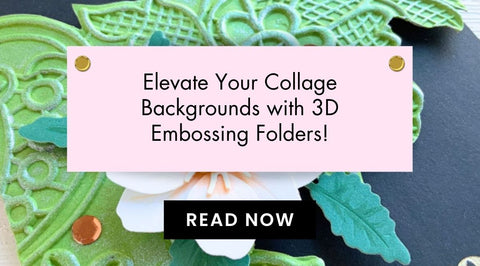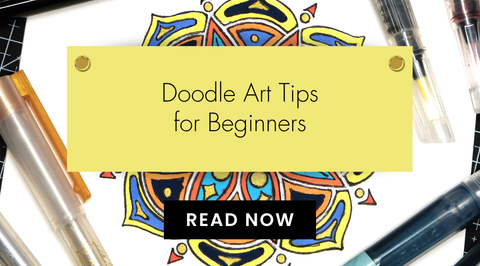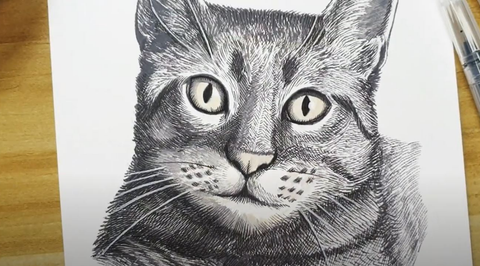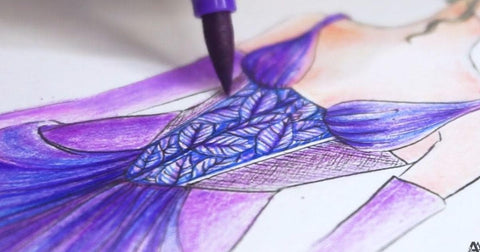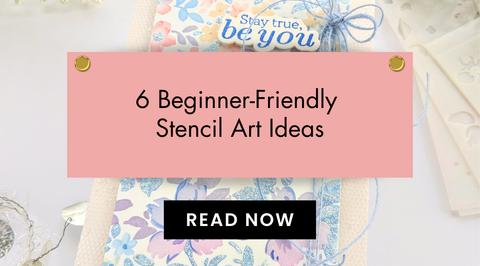Color Psychology: Exploring Emotions and Meanings on National Coloring Day
Last Updated: July 29, 2024
"Color is a power which directly influences the soul." - Wassily Kandinsky.
As artists, we all know the impact that colors have on our artwork. They can make our viewers feel emotions, evoke various imagery and themes, and play a vital role in the creative world. But have you ever wondered about the language of colors and the psychology behind them? With National Coloring Day coming up on September 14, 2023, we've compiled a list of the beautiful colors we often use and their meanings.(Spoiler alert: We used colors featured from our exclusive Watercolor Tubes release - coming soon!)

So, grab your rainbow of mediums, dust off your palettes, and let's dive into some coloring!
What Is Color Psychology?
Color psychology delves into the meanings of colors, revealing a rich tapestry of emotions and associations that each hue carries. It examines how different colors can influence feelings, behaviors, and perceptions. This field is truly fascinating, as it explores the psychological and emotional effects of various colors on individuals and cultures. In essence, it is the art and science of understanding why certain colors evoke specific emotional responses in us.
Color psychologists delve into the meanings of colors, uncovering a wide range of emotions and associations that each color carries. These associations can often vary depending on cultural, personal, and even situational factors. For example, the color red might evoke feelings of passion and excitement in one person, while in another context, it could symbolize danger or serve as a warning.

Understanding the meanings of colors can be immensely valuable in various applications. It can inform decisions in fields such as marketing and branding, where companies strategically use colors to convey their message or influence consumer behavior. In interior design, color psychology assists in creating spaces that evoke specific moods, such as fostering a sense of calm in a bedroom or energizing an exercise room. Particularly in the realm of art, having knowledge of the impact of colors can guide your choices in paintings, decorations, and beyond.
The Science Behind Palette Perfection: Watercolor Tubes
As mentioned earlier, we are exploring the meanings of the colors from our upcoming release of Artists' Watercolor Tubes - 8ml. These tubes are highly pigmented, highly reactive to water, easily blendable, and will give you effortlessly flowing watercolors! They are set to be released on September 25, 2023, but we're offering you an exclusive sneak peek of the specially-curated colors and their unique properties.
Titanium White
Titanium White is renowned for its exceptional brightness and opacity. It serves as a key tool for crafting clean, sharp highlights and as a versatile mixer for achieving lighter shades across your color spectrum. This versatility elevates Titanium White to a foundational position on your palette, enabling you to explore a vast array of hues and tones.

Titanium White boasts minimal undertones or impurities, ensuring that when you blend it with other colors, it won’t introduce unexpected tints. This quality makes it particularly valuable for precise color mixing and matching.
In the realm of art, white frequently cnveys symbolic meanings such as purity, innocence, and simplicity. When paired with bold, dark colors, it can be used to create contrast and draw attention to specific elements in a composition, representing balance or the concept of yin-yang, for example.
Phthalo Green

Phthalo Green, also known as Phthalocyanine Green, is a vibrant and intense green pigment. It's known for its deep saturation and ability to produce bold green hues. This makes it a popular choice when you want to create lush landscapes, vibrant foliage, or eye-catching green elements in your artwork. Green, in general, is often associated with concepts like growth, nature, and renewal.
Opera Lemon
Opera Lemon is a vibrant and eye-catching color that's hard to miss. With its neon yellow hues, this very fluorescent color is perfect as a color filler and mixer for various undertones. This bright shade of yellow is often associated with energy and optimism. It's a playful color that can instantly uplift your mood and bring a sense of positivity.

Toluidine Red
Toluidine Red is known for its bright and intense red color, making it a popular choice among artists. This pigment is frequently used to create various shades of red, pink, and magenta. Like many other colors in our Artists' Watercolor Tubes, it is prized for its lightfastness, which means it resists fading over time when exposed to light. It is also one of the three primary colors in our release enabling you to create complete color wheels and making it a versatile hue.

Reds like Toluidine Red are often associated with strong emotions and attributes. Red is known to evoke feelings of passion, love, energy, and excitement. It can also symbolize intense feelings like madness or anger in specific contexts.
Quinacridone Violet
Quinacridone Violet is celebrated for its stunning brilliance and purity. It boasts a uniquely rich, deep violet hue that's often difficult to achieve with other pigments. It's known for its transparency, making it an ideal choice for glazing techniques. It can be combined with other colors to create a wide range of beautiful purples and violets, as well as muted grays when mixed with complementary colors.

In ancient times, violet and purple hues were colors typically associated with royalty and luxury. This association was partly due to the manufacturing process of violet pigments and the rarity of the color in nature. Violet can convey a sense of quiet grace, sensitivity, and sophistication. It can also symbolize the unknown, the unexplored, and the hidden aspects of life.
Find the Perfect Colors for Your Watercolor Artwork Here!
Quinacridone Magenta

Quinacridone Magenta is characterized by its gorgeously intense pinkish-red hue. Artists love this versatile color for its transparency and vibrant tinting strength. It's an excellent choice for creating shades of reds, pinks, and purples when combined with colors like blues or yellows.
Like many shades of red and pink, Quinacridone Magenta can be associated with feelings of passion, love, and energy. It's a lively, attention-grabbing color that stimulates excitement, imagination, and creativity.
Prussian Blue

Prussian Blue is a vivid and distinctive shade of Blue with a rich history. It was initially created by two German alchemists who accidentally mixed a red color, making it the first-ever synthetic pigment produced to rival the expensive production of ultramarine color at that time.
This color has been used in art to convey a sense of depth, mystery, and tranquility. In fact, Prussian Blue is one of the main colors that Pablo Picasso used during his Blue Period! It is also often associated with the skies and waters, making it a popular choice for landscapes and seascapes. In contemporary art, it is used to create striking visual effects.
Tell Stories in Your Art With Colors Using These Guides!
With National Coloring Day 2023 coming, why not put your new color psychology knowledge to good use? Create projects that use these colors and tag us on social media! Experiment with different themes, messages, compositions, and, most of all - colors to convey a meaningful story with your art.
Remember to drop by our ABCs of Art page for more inspiration and guides like these on various creative topics! Happy coloring!


